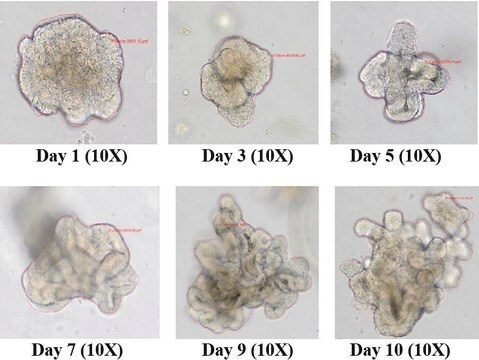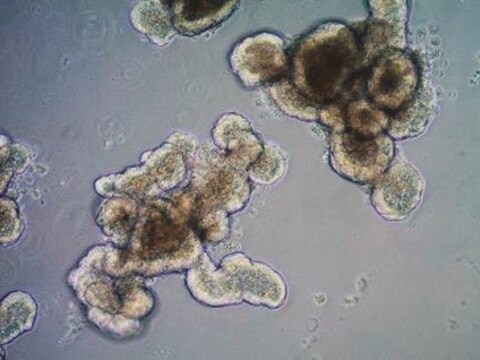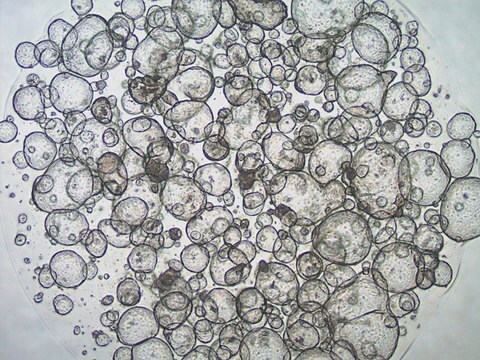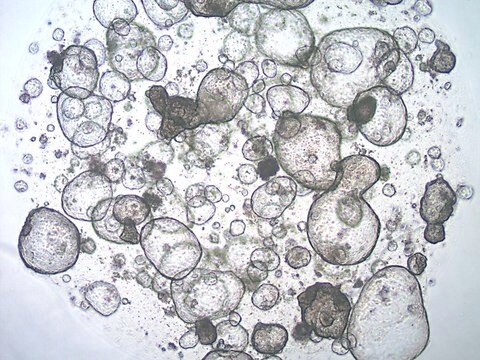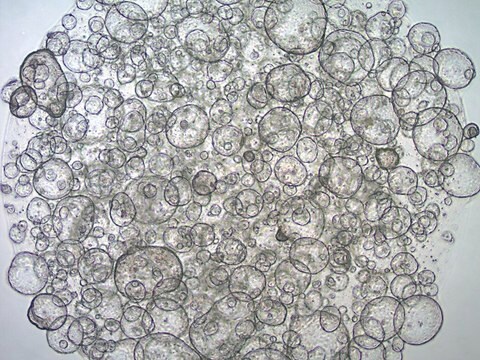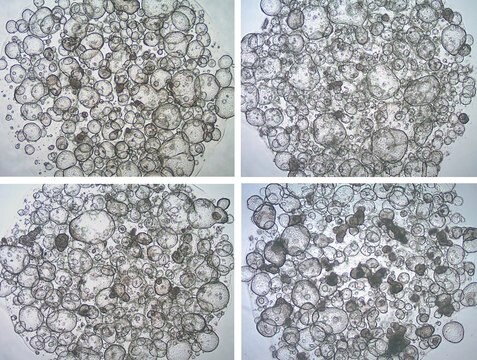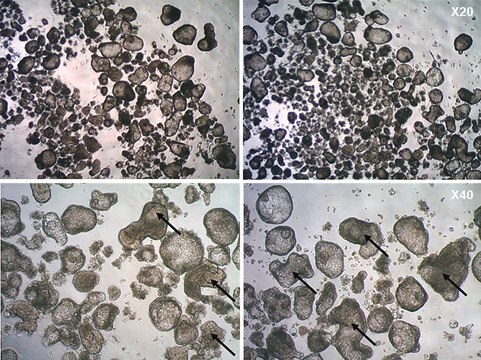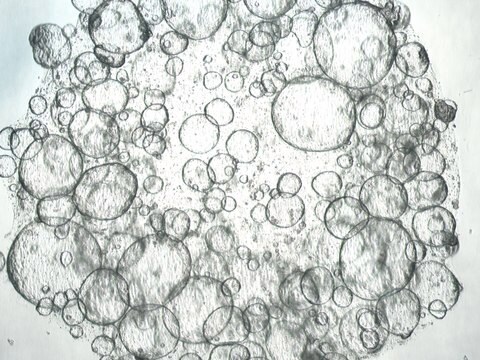推荐产品
形狀
liquid
技術
cell culture | stem cell: suitable
應用
cell analysis
一般說明
Human intestinal organoids are self-organizing, 3D structures that can be expanded in long-term culture and differentiate into intestinal epithelial cell types. Epithelial intestinal organoids, often referred to as enteroids or “mini-guts”, maintain the physiological characteristics of the gastrointestinal system and have been a useful cell culture tool to model intestinal development and disease including the study of colon cancer, celiac disease, inflammatory bowel diseases and host microbiome interactions. Organoids can be propagated from patient biopsies and from embryonic (ES) and induced pluripotent stem cells (iPS cells).
3dGRO® Human iPSC Derived Colon Organoids are derived from integration-free human iPS cells (Cat. No. SCC271) reprogrammed using the Simplicon RNA reprogramming technology (Cat. No. SCR550). Human iPS cells were differentiated using a multi-step process from definitive endoderm to posterior hind-gut endoderm and eventually into colon organoids (Figure 1.). The organoids express colon-specific markers including the posterior hindgut marker CDX2, a-carbonic anydrase II (CA-II), a-carbonic anhydrase IV (CA-IV), and goblet cell markers Mucin-2 and Mucin-5B. 3dGRO® human iPSC derived colon organoids can be propagated long-term by passaging every 10-12 days using 3dGRO® Human Colon Organoid Expansion Medium (Cat. No. SCM304).
3dGRO® Human iPSC Derived Colon Organoids are derived from integration-free human iPS cells (Cat. No. SCC271) reprogrammed using the Simplicon RNA reprogramming technology (Cat. No. SCR550). Human iPS cells were differentiated using a multi-step process from definitive endoderm to posterior hind-gut endoderm and eventually into colon organoids (Figure 1.). The organoids express colon-specific markers including the posterior hindgut marker CDX2, a-carbonic anydrase II (CA-II), a-carbonic anhydrase IV (CA-IV), and goblet cell markers Mucin-2 and Mucin-5B. 3dGRO® human iPSC derived colon organoids can be propagated long-term by passaging every 10-12 days using 3dGRO® Human Colon Organoid Expansion Medium (Cat. No. SCM304).
應用
Highly characterized cryopreserved human colon intestinal organoids derived from integration-free human induced pluripotent stem cells (iPSCs).
Research Category:
Research Category:
- Cell Culture
- Stem Cell Research
品質
- Each vial contains ≥1500 organoids.
- Mycoplasma: Negative
- Genotyped by STR analysis: Pass
- Human species verified
- Organoids are negative for HPV-16, HPV-18, Hepatitis A, B, C, and HIV-1 & 2 viruses by PCR.
- Cell viability test: Pass
儲存和穩定性
3dGRO® Human iPSC Derived Colon Organoids should be stored in liquid nitrogen.
法律資訊
3dGRO is a registered trademark of Merck KGaA, Darmstadt, Germany
免責聲明
RESEARCH USE ONLY. This product is regulated in France when intended to be used for scientific purposes, including for import and export activities (Article L 1211-1 paragraph 2 of the Public Health Code). The purchaser (i.e. enduser) is required to obtain an import authorization from the France Ministry of Research referred in the Article L1245-5-1 II. of Public Health Code. By ordering this product, you are confirming that you have obtained the proper import authorization.
Unless otherwise stated in our catalog or other company documentation accompanying the product(s), our products are intended for research use only and are not to be used for any other purpose, which includes but is not limited to, unauthorized commercial uses, in vitro diagnostic uses, ex vivo or in vivo therapeutic uses or any type of consumption or application to humans or animals.
儲存類別代碼
12 - Non Combustible Liquids
水污染物質分類(WGK)
WGK 1
閃點(°F)
does not flash
閃點(°C)
does not flash
实验方案
Highly characterized cryopreserved human colonic organoids and a step-by-step organoid culture protocol for epithelial intestinal organoid differentiation from iPS cells.
我们的科学家团队拥有各种研究领域经验,包括生命科学、材料科学、化学合成、色谱、分析及许多其他领域.
联系技术服务部门